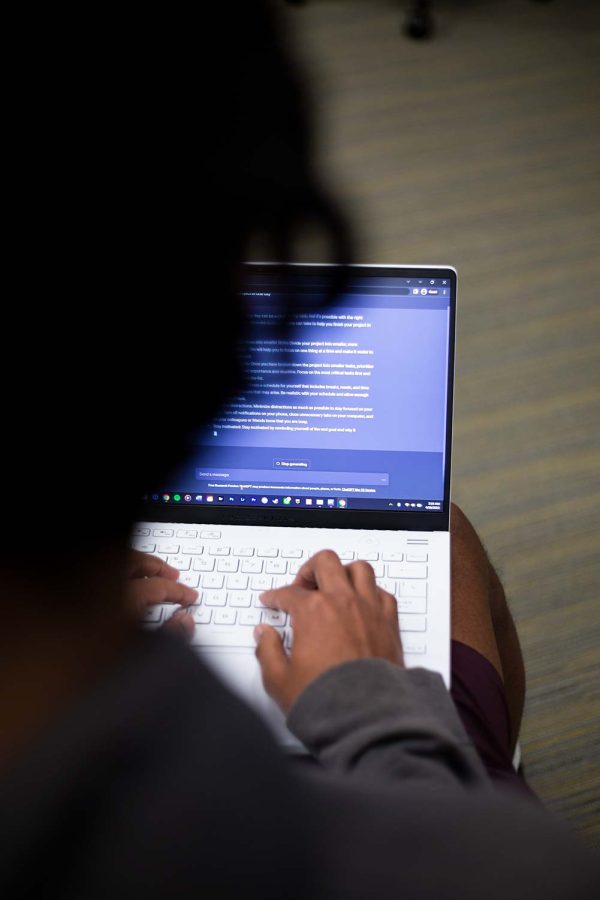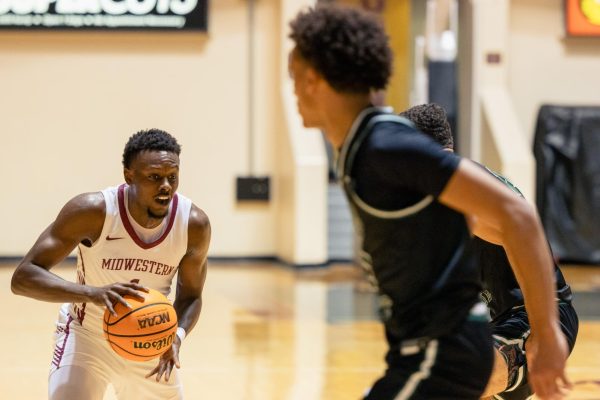ChatGPT provides new challenges to educators
ChatGPT generates impressive results, but can still sometimes output flaws, 2023.
Academic papers with no true author; projects turned in by students who did little or no work; code written by other, more complex code. AI models like ChatGPT have taken the academic world by storm, providing students with ways to quickly turn in work without putting in much – if any – effort. Higher learning institutions are working to combat a type of plagiarism that doesn’t have a true victim – at least not a human one. But beyond academic dishonesty, there is a concern among some professors that tools like ChatGPT may not impact the quality of the work students turn in, but could divert students from the whole purpose behind higher education: learning itself.
Eduardo Colmenares, associate professor of computer science, has ties to two fields that ChatGPT is heavily impacting; university learning and technology.
In the broader field of computer science, Colmenares said he doesn’t believe AI will fully supplant human workers. He said in its current form, AI like ChatGPT still produces flawed information that requires human perspective to check and fix.
But at the university level, Colmenares has different concerns. Students may use AI tools to circumvent actually learning material, leaving students unequipped to solve problems on their own.
Colmenares said despite the fact that some students are failing to grasp concepts because they can simply ask ChatGPT to do their work, ChatGPT isn’t all bad. But Colmenares said some students take advantage of the software too much.
“Do I consider ChatGPT to be bad? No. I think ChatGPT is a great learning tool. It can be used as a great learning tool. The way I look at it is, some books for example, especially these days – back in my generation it was different – but especially these days, some books have proposed problems, especially for example math, they have proposed problems. And on the back you might have the full solution for that problem. And so the temptation is totally up to the student, and that is the control. It’s exactly the same,” Colmenares said.
“You can take the decision and put in effort and try to develop your skills by solving the problem and failing and then looking at where the mistake is, or you can escape this completely and look at the solution. One is going to give you more than the other, but the control is on the final user,” Colmenares said, adding later “If they don’t have the skills, that is going to impact them in a negative way.”
Terry Griffin, associate professor of computer science, said people need to be careful because answers generated by AI can still be wrong. He said as much as 70% of code he has had ChatGPT generate has needed correction. But Griffin said that can provide opportunities for good students, and that he feels faculty need to take the good with the bad.
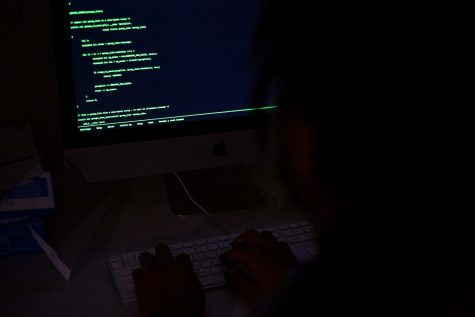
“You’re not gonna stop somebody from using it, and so you might as well embrace it and encourage it,” Griffin said, later adding “Students, they’re gonna cheat. It’s just expected. Not all of them, but some. I think the same idea, if you can just embrace it and not try to fight it.”
Griffin said the benefits come from students using the AI to generate work, but then going through and making connections. He said it allows students to actually learn the ins and outs of what they do rather than relying on ChatGPT to do the work entirely.
“You have to have a general understanding. If you’re going to use it for coding, I don’t know about the creative side of writing an English paper or some kind of a, I don’t know, any other assignment in any other department. For us at least, you can’t just blindly use it. So if they try to run something and it doesn’t work, just fixing it will help them understand a little better, so that’s okay,” Griffin said.
Colmenares echoed Griffin’s sentiment and said students need to learn to be critical of the tools they use.
“Part of the learning experience is, that tool is out there. You can use it, but still you need to use your own criteria to verify that things are correct,” Colmenares said.
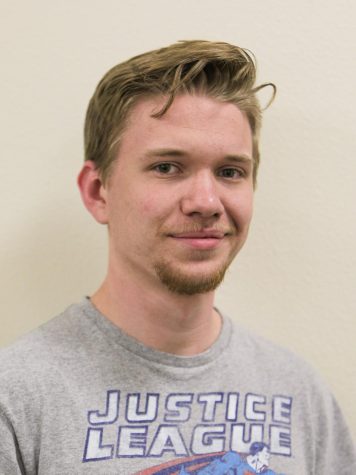
Hello, and thanks for stopping by! My name is Cecil Witherspoon, and I'm the new editor-in-chief of the Wichitan. I'm a mass communication senior with...
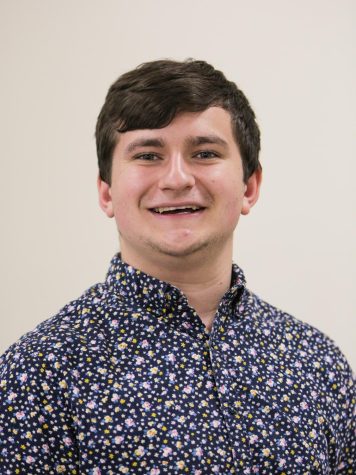
Howdy hey! I'm back for my final year here at MSU, and I intend to leave the Wichitan better than I found it.
Going into my fourth year, I will be working...




